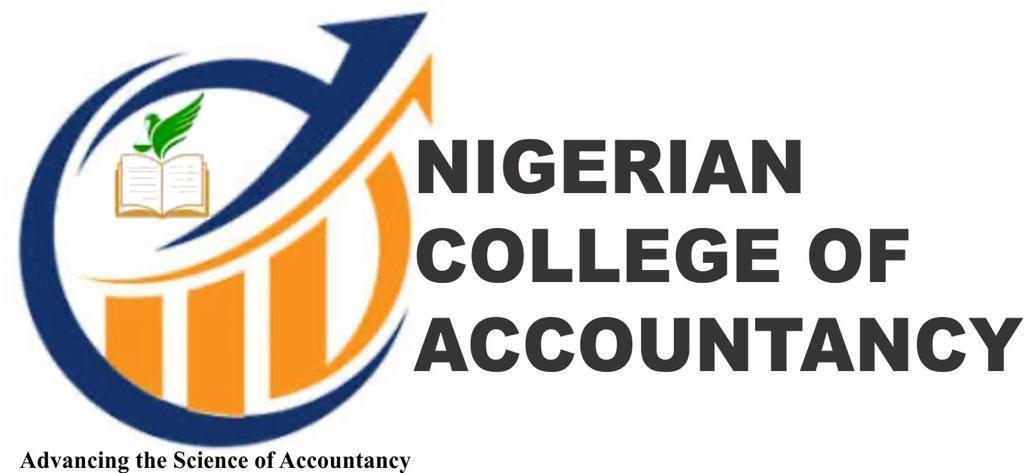
NIGERIAN COLLEGE OF ACCOUNTANCY, KWALL
ADVANCING THE SCIENCE OF ACCOUNTANCY IN NIGERIA, PIONEERING A MULTI-DISCIPLINARY EMPHASIS IN THE PRODUCTION OF WELL ROUNDED, WELL BLENDED AND WELL-HONED PROFESSIONALS, PROFOUND IN KNOWLEDEGE, SKILLFUL IN PRACTICE AND ETHICAL IN CONDUCT.
COLLEGE HISTORY
The College first opened its doors to students in 1984 at Barkin Ladi in Plateau State under an Administrative Secretary, who was then designated, Coordinator. In the very first 1984/85 set, only ten professional students were admitted. The figure dropped to four students in 1985/86, and six students in 1986/87 session, before rising marginally to fifteen in the 1987/88 session. As a result of the unusually difficult situation faced by the College in those early days, the College temporarily shut its doors in 1988. However, with the promulgation of ANAN Act in 1993, the College picked up dramatically in pace and tempo.
Currently, the College is temporarily situated at NIGERIAN COLLEGE OF ACCOUNTANCY, College of Accountancy Road, Kwall-Near Jos. It was re-opened for academic and professional work in the 1994/95 session with 54 students; 1995/96 session had 142 students and 1996/97 session had 138 students, in 1999/2000 206 students, and in the 2000/2001 session 384 students, 2001/2002 session 656 students, 2002/2003 session 821 students, 2003/2004 session 1,288 students, 2004/2005 session 1,377 students, 2005/2006 session 2,277 students, 2006/2007 session 3,200 students and 2007/2008 session 3,300 students. Its session commences in September and ends the following May. When at full-stream, the College is expected to have an annual intake of 4,000 profession students and another 1,000 practising accountants on Mandatory Continuing Professional Development, MCPD.
On graduation from the University or Polytechnic, the accounting graduate qualifies to attend the NIGERIAN COLLEGE OF ACCOUNTANCY (NCA) where he is given proper professional education and training by experienced professional experts with sound educational background. The Nigerian College of Accountancy is headed by a Director General who is a Certified National Accountant. He is the Chief Executive and Accounting Officer of the College. The Governing Board of the Nigerian College of Accountancy consists of eight (8) Certified National Accountants with the Director General as Member/Secretary to the Board.
At the College, the system of lecturing is largely workshop oriented, garnished with tutorials. Visiting lecturers with wide practical experience are invited on periodic basis to provide tutorial to complement formal lectures.
The objective of this system of pedagogy is to develop students’ ability to practicalise theoretical concepts of a given situation. Students of the College are presumed to have mastered the principles and theories of accounting at degree or higher diploma levels at the University or Polytechnic.
It goes without saying that the emphasis at Nigerian College of Accountancy is on practice and integrity, because the training procedure imparts knowledge, aptitude, skill, competence and, of course, beyond that, judgment in the application of these factors to problems in real life situation. Personality Presentation and Professional Ethics such as mode of dressing, development of personal confidence, sufficiency of self-discipline, self-analysis, self-criticism and caution which reduces the possibilities of mistakes and help acceptable ethical standards in serving the public and colleagues, end of the one year full time (nine months) course, students sit for the professional examination –PEA in January and PEB in May.
On passing the professional examinations, the student then qualifies to undertake a two-year supervised practical experience training in any sector of the economy. Thereafter, he becomes eligible to apply for membership of the Association, and if admitted as a member, he will be entitled to describe himself as a Certified National Accountant and to write after his name the designation “CNA”. At this stage, he is a fully qualified professional accountant but he cannot set up an office for private practice until he fulfils additional conditions set out here under. The Nigerian College of Accountancy is the first of its kind to be established by a body of accountants anywhere in Africa.